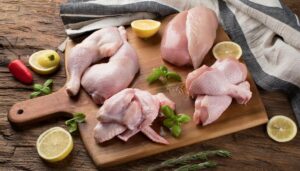
Poultry meat exports from Ukraine in January 2026 amounted to 38.1 thousand tons, which is 6.1% more than in December 2025, according to the Ukrainian Poultry Farmers Union.
The industry association specified that in monetary terms, exports for the specified period decreased by 2.1% to $85.4 million.
“The growth in physical export volumes against the backdrop of a decrease in total revenue is a consequence of a decline in the export value of products due to a fall in world prices for poultry meat,” the Poultry Farmers Union noted.
The main buyers of Ukrainian products in January were the Netherlands (21.9%), the United Kingdom (11.8%), the UAE (9%), and Slovakia (8.2%). The share of EU countries in total exports was 37.3% (13.8 thousand tons). At the same time, in monetary terms, the European market provided almost half of the foreign exchange earnings – 48.7%.
As reported, in 2025, Ukraine reduced the physical volume of poultry meat exports by 1.8% compared to 2024, to 458.1 thousand tons, but foreign exchange earnings from its sale increased by 13.7%, reaching $1.15 billion. The main markets were the EU countries (in particular, the Netherlands and Slovakia), Saudi Arabia, and the United Kingdom.

Poultry meat exports from Ukraine in 2025 decreased by 1.8% to 458,100 tons, while revenue for the year amounted to $1,149.1 million, which is 13.7% more than in 2024, according to the Ukrainian Poultry Association (UPA), citing data from the State Customs Service.
The industry association noted that 18.4 thousand tons of the total export volume accounted for export shipments of finished poultry meat products totaling $58 million.
“The growth in total revenue amid a decline in physical export volumes indicates an increase in the export value of products and favorable price conditions in foreign markets over the past year,” the UPA explained.
The main buyers of Ukrainian poultry meat in 2025 were the Netherlands (17.4%), Saudi Arabia (9.9%), Slovakia (7.6%), and the United Kingdom (11.9%). The share of exports to EU countries in total exports reached 30.6% (139.7 thousand tons). Thus, the countries of the European Union, the Middle East, and the United Kingdom continue to form the basis of external demand for Ukrainian poultry products, the APU emphasized.
The association explained the growth in export revenues, despite a slight decrease in physical export volumes, by an increase in average export prices and an increase in the share of products with higher added value.
In addition, Ukrainian producers are gradually reorienting exports to solvent markets, which allows them to offset logistics costs and maintain production profitability amid constantly rising production costs, the Poultry Farmers Association noted.
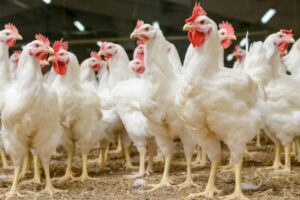
Avesterra Group intends to increase its poultry population to 10 million, build a feed mill, and expand its land bank to 25,000 hectares, co-owner Dmitry Dobkin said in an interview with Liga.net.
“We will build poultry farms. We currently have capacity for 4.1 million birds. We need to develop this to 10 million birds per batch. In turn, this pace of development requires the modernization of the existing feed mill or the construction of a new one. This is because the existing one will definitely not be able to cope with the new production capacity,” he said.
Dobkin said that the group had accumulated a land bank of 3,000 hectares for the construction of a modern poultry processing plant in the Volyn region. However, in order to be independent from external cataclysms and to provide the poultry farm with feed, there are plans to expand the land bank to 25,000 hectares of fields.
He said that another way to minimize production risks is to create their own incubation facility, including the formation of a parent flock.
“Then the entire chain from egg to finished meat will be ours,” Dobkin emphasized.
Avesterra Group was established in January 2025. It includes Volodymyr-Volynskyi Poultry Farm and Lutsk Agrarian Company, which produce 53,000 tons of broiler meat per year. Annual revenue is about UAH 4 billion. Of the 5,000 tons of total production, 700 tons are sold under the Epicur brand, and the rest under the Chebaturochka brand.
In June 2025, the group launched a processing plant, in which it invested EUR 60 million. It is located in Volyn, covers 30,000 square meters, and has new treatment facilities.
The business is owned in equal shares by the Dobkin family.
Volodymyr-Volynskyi Poultry Farm accounts for about 5% of the Ukrainian chicken market. It has seven branches: Kharkiv, Kyiv, Odesa, Dnipro, Vinnytsia, Lviv, and Volodymyr. The factory’s infrastructure consists of 100 poultry houses, a slaughterhouse, and a feed mill. The company also has its own land fund of 3,000 hectares, where it grows cereals and legumes for the production of compound feed, as well as industrial crops. The factory employs over 1,500 people.
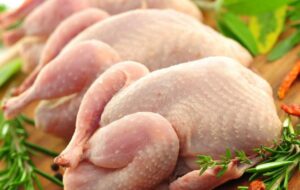
Exports of poultry meat brought Ukraine almost $1 billion in 2024, the Verkhovna Rada Committee on Agrarian and Land Policy reported, citing information from the State Customs Service of Ukraine.
According to the report, in 2024, the Ukrainian poultry industry demonstrated an increase in exports, which increased by 5.7%, and revenues, which increased by more than 20%.
At the same time, exports of poultry meat and edible offal reached 448.8 thousand tons, which is 5.7% more than in the previous year. Total exports amounted to $962.7 million, which is 20.4% higher than in 2023.
The main importers of Ukrainian products were the Netherlands, which purchased 23.2% of total exports. Saudi Arabia ranked second with a share of 16.1%, and Slovakia was third with 8.5%.
In 2024, Ukraine also exported 77.8 thousand tons of eggs, which is 59.4% more than a year earlier. In monetary terms, exports increased by 22.5% compared to 2023 to $74.5 million. The main buyers of Ukrainian eggs were Israel (14.1%), Poland (11.7%) and Italy (11.1%).
The growth in exports demonstrates the high competitiveness of Ukrainian products in the international market and the efficiency of domestic producers. Expanding the geography of supplies and increasing demand for Ukrainian poultry and eggs once again emphasize its quality and compliance with international standards, the MPs noted.
The Verkhovna Rada emphasized that these indicators are a positive signal for the further development of the poultry industry in Ukraine, in particular for attracting new investments and expanding export potential.
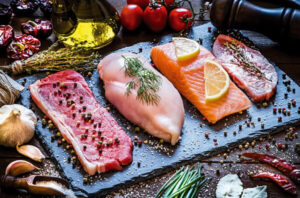
Ukraine and China are working to open the Chinese market for Ukrainian peas, poultry, corn, and fish products, the press service of the State Service for Food Safety and Consumer Protection reports.
“China is an important market for national exporters of agricultural products, so on behalf of the head of the State Service of Ukraine for Food Safety and Consumer Protection, Serhiy Tkachuk, the service and the competent authority of China continue to interact on a regular basis. Our goal is to open seven new markets. This is a long process of coordination, but step by step we are succeeding,” said Oleh Osiyan, First Deputy Head of the State Consumer Service, at a meeting with representatives of the General Administration of Customs of the People’s Republic of China (GACC).
The parties discussed draft bilateral international agreements on the export of peas, wheat flour, pet food, beef, corn, poultry, and wild-caught aquatic products from Ukraine to China. Each of these documents is at a different stage of development and approval.
“Currently, the protocol on peas is at the stage of finalizing domestic approval in Ukraine, and the texts have been sent to the competent authority of China for consideration. This is one of the markets that is at the final stage of opening. After the signing of the bilateral protocol, new opportunities for pea exports will open up for Ukrainian agricultural businesses,” said Vadym Chaikovskyi, Deputy Head of the State Service of Ukraine for Food Safety and Consumer Protection and Chief State Phytosanitary Inspector of Ukraine.
It should be reminded that the last Ukrainian product to be granted access to the Chinese market was honey. The form of the health certificate for its export was agreed upon earlier this year.
The requirements of the countries of destination for the export of food products of animal and plant origin are published on the official web portal of the State Service of Ukraine on Food Safety and Consumer Protection.
“Currently, our Chinese colleagues are considering draft protocols on the export of poultry and fish. The State Service of Ukraine on Food Safety and Consumer Protection sent its proposals on the text of the protocol in the fall. The protocol on wild-caught aquatic products has already passed domestic approval and is at the stage of final approval by the Chinese side. The texts of the protocols on beef and pet food are also undergoing the stage of internal approval,” said Volodymyr Kusturov, Deputy Head of the State Service of Ukraine for Food Safety and Consumer Protection and Chief State Veterinary Inspector of Ukraine.
Representatives of the State Food and Consumer Service and the GACC discussed in detail the steps for further cooperation, draft bilateral agreements, and agreed to continue active cooperation on the development of international trade between Ukraine and China.
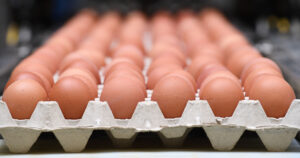
Romania has expanded the list of goods imported from Ukraine that require a license to enter the country to include eggs and poultry meat, Euractiv.ro reported, citing information from the Romanian government. The publication reminded that Romanian poultry producers faced a “serious problem” due to the import of eggs and poultry meat from Ukraine, which are sold at prices significantly lower than the cost of production in Romania.
According to the Minister of Agriculture Florin Barbu, after discussions with representatives of the poultry industry, the government decided to add eggs and poultry meat to the list of products that can be imported from Ukraine only with a license. The list also includes cereals, seeds, flour and sugar.
“It is our duty to protect Romanian production,” Barbu said.
In addition, he reminded that Romania, as a member of the European Union, must comply with certain production requirements in the poultry sector, which is why Romanian poultry farmers have “30% higher costs than in Ukraine.”
Barbu also emphasized that there is no ban on imports of Ukrainian eggs and poultry meat.
“We have made this decision on licensing to ensure that when the food industry needs these products and Romania is not completely self-sufficient, only Romanian processors will be able to import them under license,” he added.
After the European Commission decided not to extend the ban on imports of Ukrainian grain to five neighboring EU countries (Bulgaria, Poland, Romania, Slovakia, and Hungary) in September 2023, Romania introduced import licenses for grains and oilseeds from Ukraine and Moldova. This measure, introduced in October last year, was extended.
According to this decision, only Romanian companies engaged in the production of oil and fat products, flour milling, animal feed production and livestock farming are entitled to import agricultural products from Ukraine and Moldova.